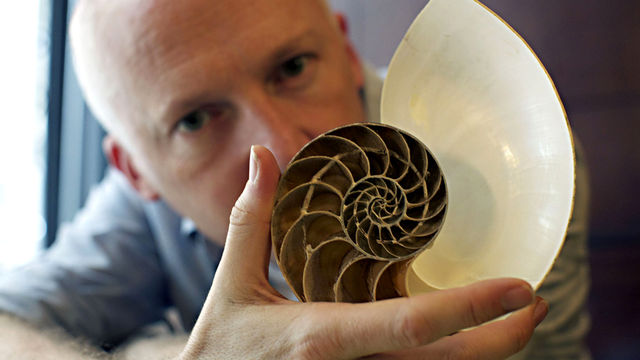Want to claim there is a mathematical secret, far beyond human intelligence, buried in religious texts? Sure, I will listen, if it's on TV and well produced. It's fun to speculate that prayers and rituals have a pattern that contains some sacred rhythm and people 3,000 years ago were super smart about it and we are not. It can get a little funky if you take it too seriously, though. Words no longer have meaning if they are instead numerical combinations. Change a word, or add one, and you would apparently allow sleeping with your neighbor's wife or whatever in the Ten Commandments.
What they have to do, though, is be earth-centric in their calculations and attribute meaning to coincidence. I debunked the Harold Camping doomsday Biblical math prediction last year (see So The Rapture Is Saturday - Luckily The Grey's Anatomy Season Finale Was Last Night) because all you have to do is not believe that 10 and 7 have supernatural properties and his calculations broke down. I was right, we are still here.
It is not just Christians. The Quran attributes special meaning to the number 19. And the Moon, Earth and Sun are really close to each other every 19 years. Halleys comet visits us about every 76 years, which is...19x4. There are are 114 chapters in the Quran, which is 19 x 6. You can do similar correlations all day if you want.
So I may not buy it but I like it. I like the thinking, I like that people have devoted irrational amounts of their time to it (let's be honest, the amount of time I have spent advocating Science 2.0 is not rational) and, like UFOs or the Shroud of Turin programs, it can be fun if you don't get too caught up and try to call it science.
It's part of the human condition to want to make the unexplainable attainable. St. Augustine felt that 7 was a fundamental number in the Bible, and 10 even more so. If you like mathematics as a divine pattern, you will love Oxford professor Marcus du Sautoy's The Code, just now in America on DVD.

Coincidence? Not to Marcus du Sautoy. Credit and link: BBC
du Sautoy, Polyani Professor for the Public Understanding of Science at Oxford (he was successor to Richard Dawkins in the Chair, so you already get the idea he is interested in science outreach and not just bashing religion), loves numbers, he sees the patterns everywhere and he makes connections where he can. 12 tribes of Israel, 12 disciples of Jesus, 12 year insect infestations in Alabama, it is not coincidence to him. But he holds a special affection for prime numbers, those natural numbers greater than 1 that can only be divided by 1 and themselves. He even makes the case that certain cicadas emerge to feed and reproduce on a prime number interval because of an evolutionary mandate that found the number 13 efficient. And he shows their way is most efficient - you will believe it is because of the prime number reality if you really want to.
He can do it about lots of critters. If I am creating a numerical model, I use a triangle mesh. To me, it is the most efficient use of limited computing power and I can get as accurate as you want, and solve as well as you want, depending on the time you have. Yet bees do not use the triangular mesh I would favor, they create wonderful hexagons. It turns out that for the structures they are creating, a hexagon, while not the most efficient in time, actually uses less wax for what bees are creating. Nature, du Sautoy contends, always finds the most efficient mathematical solution.
Really? Anyone who has ever looked at the human male reproductive system knows that nature does not always converge on efficiency. Sometimes it converges on the downright laughable. No mathematician, much less a universal mathematical constant, would have designed something that leads to breakdowns so easily.
The wisdom of crowds. Near and dear to the Science 2.0 heart.
It isn't just biology and geometry, he shows us whole number octave ratios in music and how they are related - and he is right, if Western notation were all that existed in the world. But things can break down a little there too. Western astrologers can also explain everything according to their beliefs, they simply map the data they like to the topology they want. But they can't explain why I am a Virgo in America but if I discover I was born in India and adopted I am a Leo; those two personality types should have nothing in common and yet astrologers easily find ways to make any sign mean anything to anyone. So it goes with numbers.
There's lots of fun stuff too. He accurately uses normal distribution to predict the largest size of a fisherman's catch, for example. He's like a mathematics Neil Shubin, only with a heavy dose of atheistic metaphysics.
Does that mean normal distribution is part of a mathematical pattern that connects the natural world around us? Is math the the fundamental thing, the essential 'mesh' Husserl sought, rather than the language scientists use? Is du Sautoy a modern day Pythagoras, convinced that all things boiled down to numerical reductionism? Maybe, maybe not. But The Code makes his thought process in finding out a lot of fun - and he is a lot more of a fun atheist than Richard Dawkins.
How fun? du Sautoy once claimed his religion was "Arsenal" and the Gunners are a fine thing to be devout about.




Comments